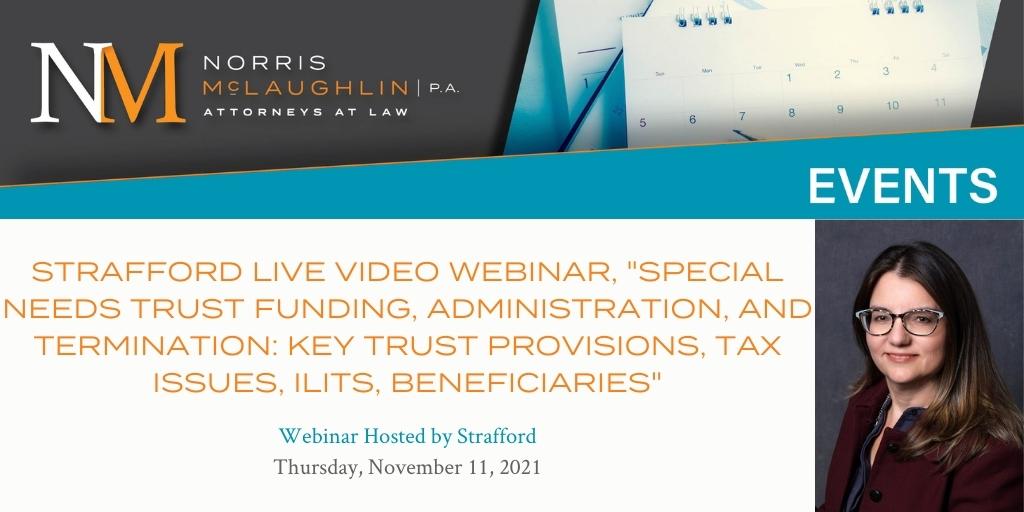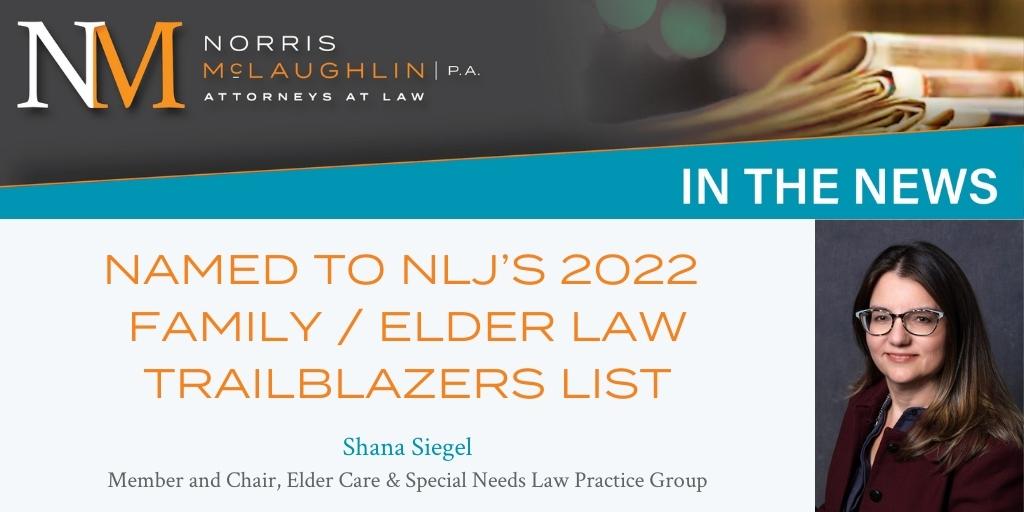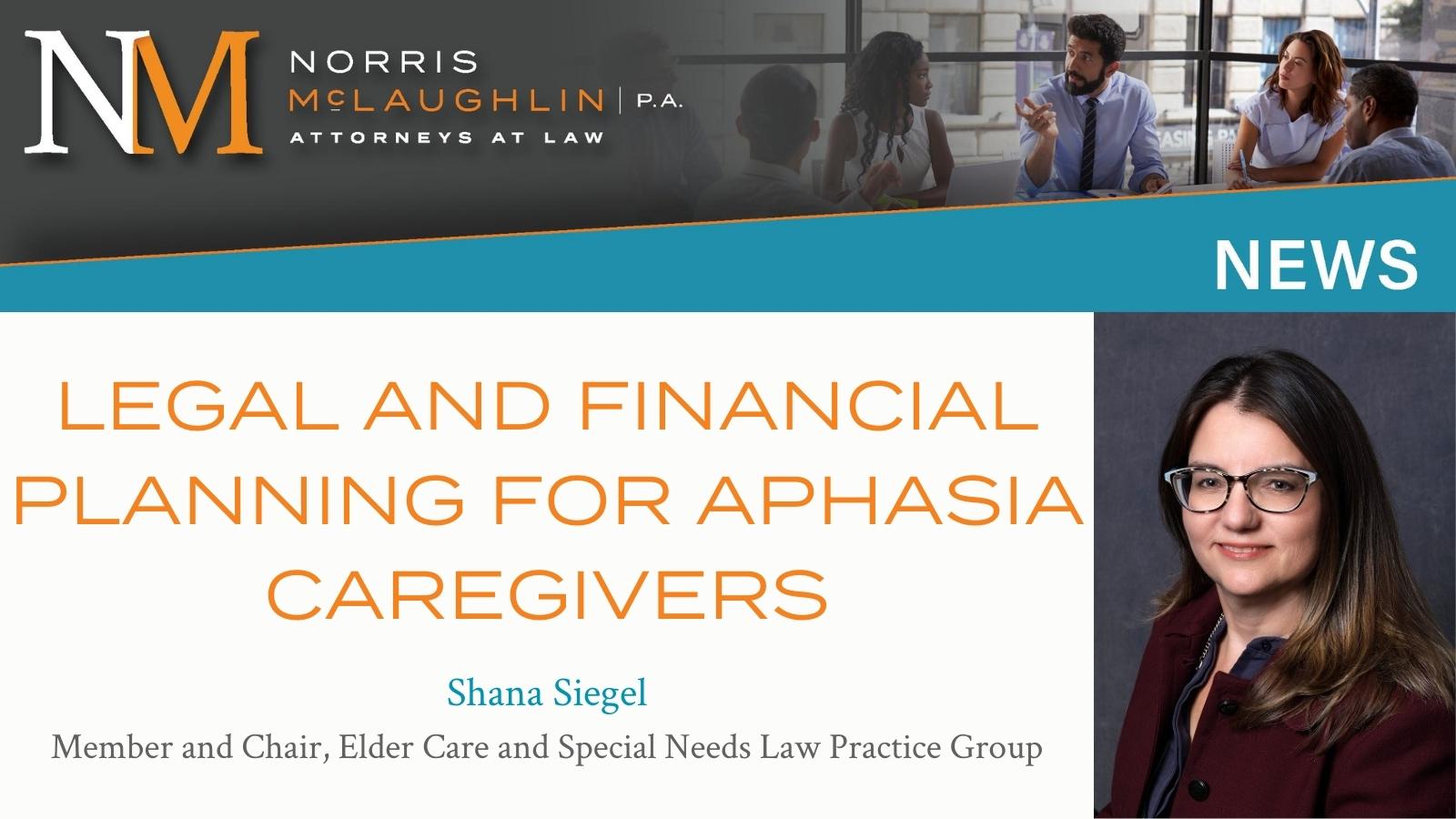Strafford Live Video Webinar, “Special Needs Trust Funding, Administration, and Termination: Key Trust Provisions, Tax Issues, ILITs, Beneficiaries”

Shana Siegel, a Member of law firm Norris McLaughlin, P.A., and Chair of its Elder Care and Special Needs Law Practice Group, will speak in an upcoming Strafford live video webinar, "Special Needs Trust Funding, Administration, and Termination: Key Trust Provisions, Tax Issues, ILITs, Beneficiaries" on Thursday, November 11, 1:00 p.m.-2:30 p.m. EST.
Special Needs Trust Funding, Administration, and Termination
Special needs trusts (SNTs) are an integral part of the practice of elder law. To handle these trusts properly for clients, counsel must know when SNTs are appropriate, how to draft SNTs, how to administer the trusts and determine when a trust should be modified or terminated, and the potential legal and tax implications.
The Special Needs Trust Fairness Act permits mentally competent individuals with disabilities to establish SNTs for their benefit. In the past, only parents, grandparents, legal guardians, or a court could set up trusts on behalf of a disabled person. Counsel must understand the tax consequences and the impact on a client's public benefits when establishing an SNT. In addition, counsel must be aware of pitfalls when amending or terminating SNTs and alternatives to minimize any adverse impact on the trust and beneficiaries.
Key Trust Provisions, Tax Issues, ILITs, Beneficiaries
Our panel will provide an in-depth analysis of the key challenges of SNT funding, administration, and termination, as well as pitfalls to avoid. The panel will discuss SNT funding options and the best assets to put in a trust, the use of life insurance and ILITs, tax issues for SNTs, and key trust provisions. The panel will also discuss administrative challenges and procedures for termination and other complex issues.
We will review these and other key issues:
- What are the key considerations in structuring SNTs?
- What are the funding options and pitfalls to avoid?
- What are the administrative issues and best practices to avoid them?
- What are the legal and tax ramifications of modifying or terminating SNTs?
After our presentations, we will engage in a live question and answer session with participants so we can answer your questions about these important issues directly.
When: Thursday, November 11, 2021
1:00 p.m. – 2:30 p.m.
This program costs $197.
About Shana Siegel
Shana concentrates her practice in the area of elder law, focusing on representing seniors, individuals with special needs, and their families in connection with life care planning, public benefits, trust and estate planning, and long-term care advocacy. As one of the few Certified Elder Law Attorneys (CELA) in northern New Jersey to be certified by the National Elder Law Foundation (NELF), Shana has extensive experience in probate and estate administration, asset preservation, supplemental and special needs trusts, planning for disability, guardianship and estate litigation, resident rights, health care decision-making, Medicare, Medicaid, and health insurance appeals.
Shana has been involved in health and long-term care issues for over 25 years. She is a past president of the New Jersey Chapter of the National Academy of Elder Law Attorneys (NAELA), where she regularly met with legislators and government officials on behalf of the elder law bar and their clients. In 2015, Shana was invited to join NAELA’s prestigious Council of Advanced Practitioners (CAP). Additionally, Shana is a member of the New Jersey Women Lawyers Association, the New Jersey State Bar Elder & Disability Law Section, and the Life Care Planning Law Firms Association. She is active with the Long Term Living Association, several local chambers of commerce, and Jewish philanthropies.




